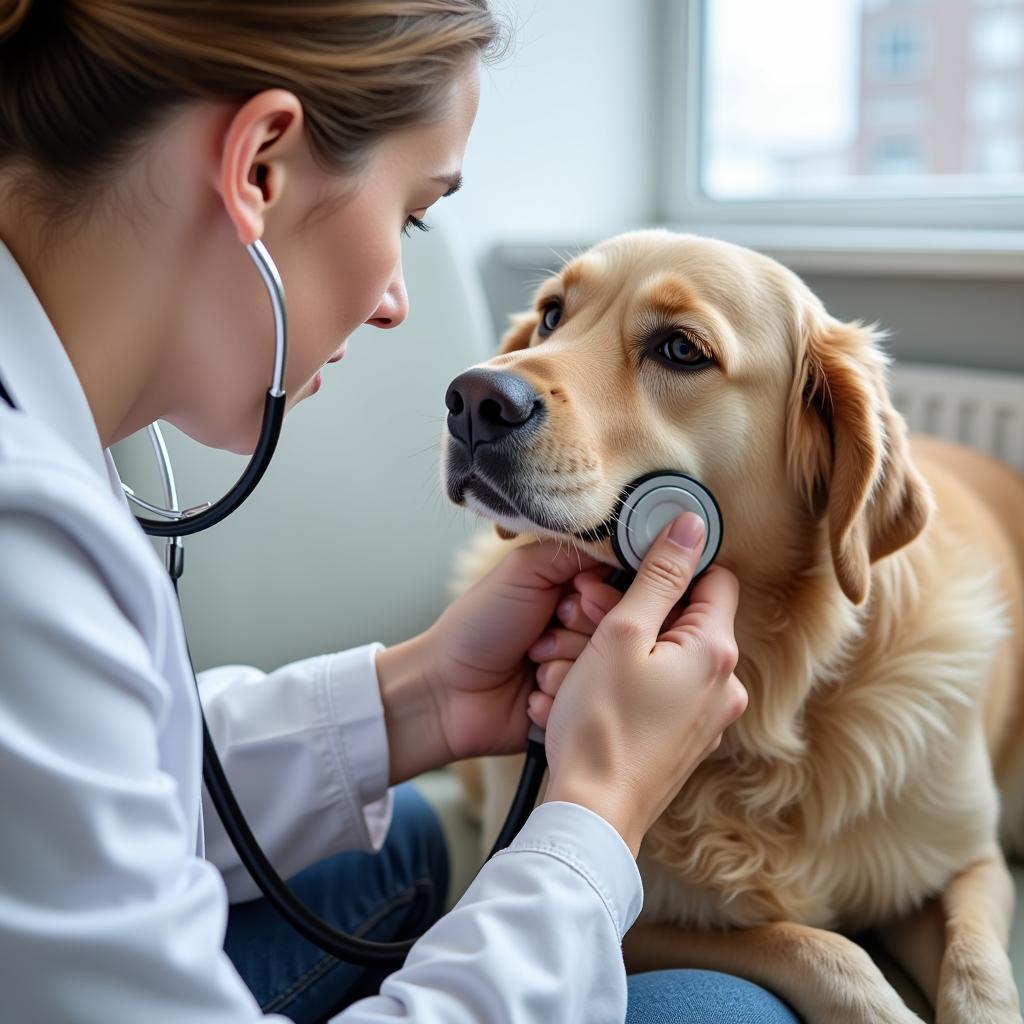Salt Free Dog Food has become a hot topic among pet owners recently. But is it really necessary to eliminate salt from your furry friend’s diet? This article delves into the truth about salt in dog food, exploring its benefits, risks, and when a salt-restricted diet is truly important.
The Role of Salt in a Dog’s Diet
Just like humans, dogs need a certain amount of salt in their diet for vital bodily functions. Salt, or sodium chloride, is an essential mineral that helps regulate fluid balance, nerve transmission, and muscle function.
However, the key here is moderation. While a small amount of salt is necessary, too much can lead to health problems, particularly in dogs with certain health conditions.
The Risks of Too Much Salt
Excessive salt intake can have adverse effects on a dog’s health, potentially leading to:
- High blood pressure (hypertension): Just like in humans, high salt intake can contribute to elevated blood pressure in dogs.
- Kidney problems: Excess salt can put extra strain on the kidneys, potentially exacerbating existing kidney disease.
- Water retention: A high salt diet can cause your dog to retain water, leading to bloating and discomfort.
- Salt poisoning: Though rare, consuming large amounts of salt can lead to salt poisoning, a serious and potentially fatal condition.
When Salt Free Dog Food Is Recommended
Despite the common misconception, most dogs do not need a completely salt free diet. Commercial dog foods are formulated to contain safe levels of sodium for healthy dogs. However, a salt-restricted diet might be recommended by your veterinarian in certain cases:
- Heart disease: Dogs with heart conditions may benefit from a reduced-sodium diet to manage fluid retention and reduce strain on the heart.
- Kidney disease: Limiting salt intake can help protect kidney function in dogs with kidney disease.
- Liver disease: Salt restriction may be recommended for dogs with liver disease to prevent fluid buildup in the abdomen.
 Veterinarian checking a dog's heart
Veterinarian checking a dog's heart
Choosing the Right Dog Food
If your veterinarian recommends a salt free or low-sodium diet for your dog, it’s essential to choose a food specifically formulated for these needs. Look for these key features when selecting salt free dog food:
- Clearly labeled: The product should clearly state “salt free” or “low sodium” on the packaging.
- Complete and balanced nutrition: Ensure the food provides all the essential nutrients your dog requires, even with reduced salt content.
- High-quality ingredients: Choose foods made with high-quality protein sources, whole grains, and healthy fats.
Beyond Commercial Dog Food
If you prepare homemade meals for your dog, consult with your veterinarian or a veterinary nutritionist to create balanced recipes that meet your dog’s specific dietary needs, including any necessary salt restrictions.
Making Informed Decisions for Your Furry Friend
While a completely salt free diet is not necessary for most dogs, understanding the role of salt in their diet is crucial. By being informed and working closely with your veterinarian, you can make the best dietary choices to support your canine companion’s overall health and well-being.
Frequently Asked Questions about Salt Free Dog Food
Q: Can I feed my dog human food if I’m concerned about salt?
A: No, it’s best to avoid feeding your dog table scraps as human food can be high in salt and other ingredients that are harmful to dogs.
Q: What are some signs of too much salt in a dog’s diet?
A: Excessive thirst, increased urination, vomiting, diarrhea, and lethargy can be signs of too much salt.
Q: Are there any natural alternatives to salt in dog food?
A: While some herbs and spices can add flavor to your dog’s food, it’s essential to consult with your veterinarian before making any significant dietary changes.
Q: My dog has [specific health condition]. Should I switch to salt free dog food?
A: It’s crucial to consult with your veterinarian before making any dietary changes for a dog with a health condition.
Q: Where can I find more information about healthy dog food options?
A: Your veterinarian is your best resource for personalized advice. Additionally, you can explore reputable websites like dog food toppers healthy for more information on dog nutrition.
Need More Help?
For any further assistance regarding your pet’s dietary needs, feel free to reach out to us. Our dedicated customer care team is available 24/7 to provide guidance and support.
Contact us at:
Phone Number: 02437655121
Email: minacones@gmail.com
Visit us at:
3PGH+8R9, ĐT70A, thôn Trung, Bắc Từ Liêm, Hà Nội, Việt Nam.
Your pet’s health and well-being are our top priorities!